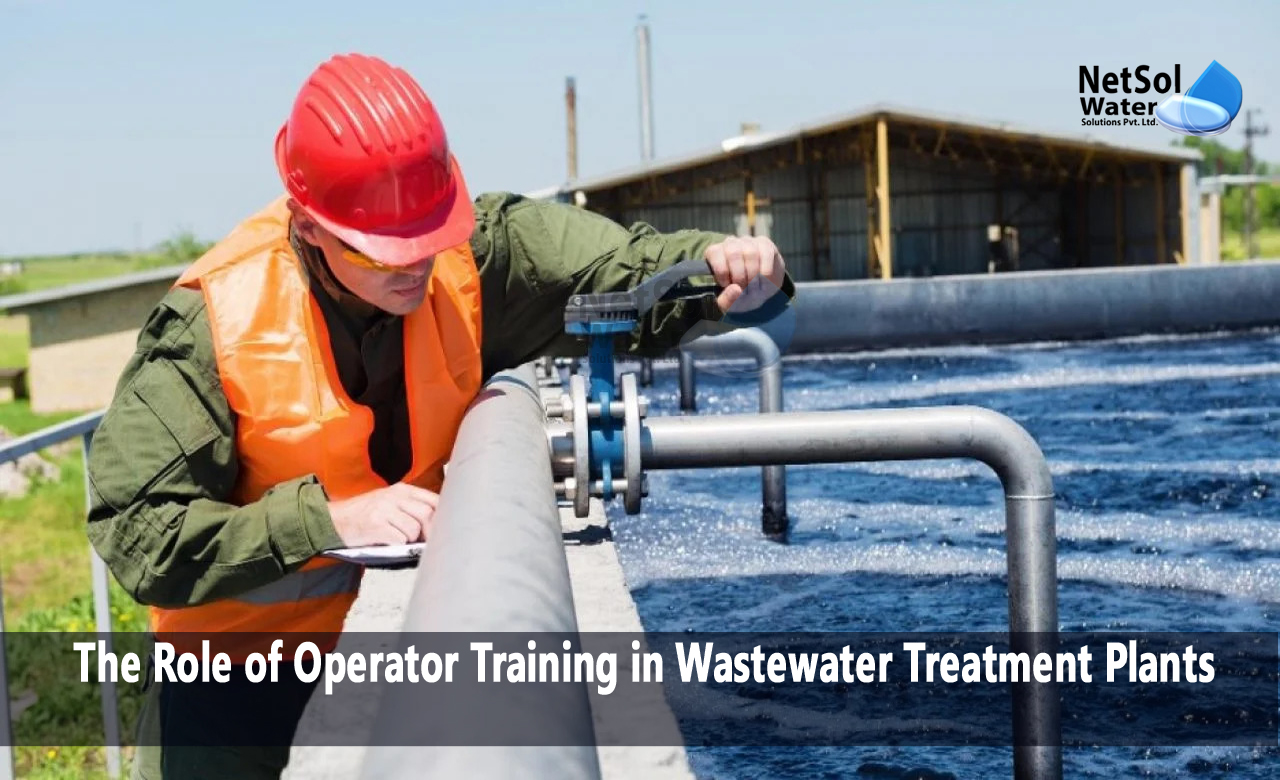What is the Role of Operator Training in WTP Plants?
Wastewater treatment plants are essential for protecting the environment and human health because they clean and disinfect wastewater before releasing it back into the environment. For these facilities to operate as intended, efficient operation and maintenance are essential. An essential component of this process is operator training, which imparts the knowledge and abilities required to operate and maintain these complex systems. This blog explores the specifics of operator training's crucial function in wastewater treatment facilities.
The Complexity of Wastewater Treatment
Designed to eliminate contaminants, organic matter, and pathogens from sewage and industrial effluents, wastewater treatment plants are extremely intricate systems. Sludge handling, primary and secondary treatment, screening, and disinfection are some of the processes that make up these facilities. A thorough understanding of the machinery, procedures, and environmental laws is necessary for managing these activities. Employees that have received operator training are better equipped to manage, diagnose, and optimise these systems.
Environmental Compliance
The laws and regulations related to the environment that control wastewater treatment are getting more and more strict. There may be penalties, legal repercussions, and environmental harm if compliance requirements are not met. To make sure that treatment plants follow these rules, well-trained personnel are crucial. To stay compliant, they need to be aware of the most recent environmental standards and best practises and modify their procedures on a regular basis.
Efficiency and Cost-Effectiveness
Not only does effective wastewater treatment benefit the environment, but it also saves a lot of money. Appropriate operator training contributes to process optimisation, energy conservation, and chemical usage reduction. This results in lower operating expenses, which eventually help the plant and the community it serves. Ineffective care can result in increased operational costs and the need for infrastructure improvements, which could raise consumer rates.
Preventing Equipment Failures
Plants that treat wastewater depend on a variety of machinery, such as pumps, blowers, filters, and clarifiers. These parts are prone to deterioration with time and may break down if not properly cared for. Employees that receive operator training are guaranteed to be able to recognise warning indications of malfunctions, do routine maintenance, and react quickly to them. Not only may equipment failures be avoided to save money, but they also avoid disturbances in wastewater treatment, which can have detrimental effects on the environment.
Emergency Preparedness
Wastewater treatment plants need to be equipped to deal with unforeseen circumstances including equipment malfunctions, power outages, and natural disasters. It is imperative for operators to possess the ability to react promptly and efficiently in order tominimise any possible harm. Drills and simulations related to emergency response are commonly incorporated into training programmes to make sure operators are equipped to deal with unforeseen difficulties.
Public Health and Safety
These facilities frequently release their treated effluent into natural water bodies or repurpose it for a variety of uses, such as irrigation. Wastewater can seriously endanger both public and environmental health if it is not properly treated. To guarantee that the water leaving the treatment facility is safe and clear of dangerous pollutants, trained operators are necessary. One cannot stress their importance in preserving public health and safety.
Innovation and Technology
With the introduction of new breakthroughs and technology, the wastewater treatment industry is continuously changing. By keeping staff members informed about these changes, operator training programmes help them take use of technology. Skilled operators possess the capacity to seamlessly incorporate novel technologies such as automation, data analytics, and advanced sensors into their operations, hence enhancing productivity and promoting sustainability.
Continuous Improvement
Operator training is a continuous procedure rather than a one-time occurrence. It takes constant learning and development to adjust to evolving laws, trends, and industry best practises. Regular refresher courses and upgrades are often included in training programmes to guarantee that operators stay knowledgeable and skilled throughout their employment.
Conclusion
Wastewater treatment plants are essential for preserving the health of the environment and ensuring public safety. The proficiency of the people who operate these facilities is essential to their efficient operation and upkeep. Their responsibilities include efficiency, environmental compliance, equipment maintenance, emergency preparedness, and public safety in addition to day-to-day process management. The key to giving these people the know-how and abilities to operate these complex systems and guarantee that the water we discharge into the environment is pure and safe is operator training. Wastewater treatment plant operator training is still essential in this day of growing environmental concerns.



